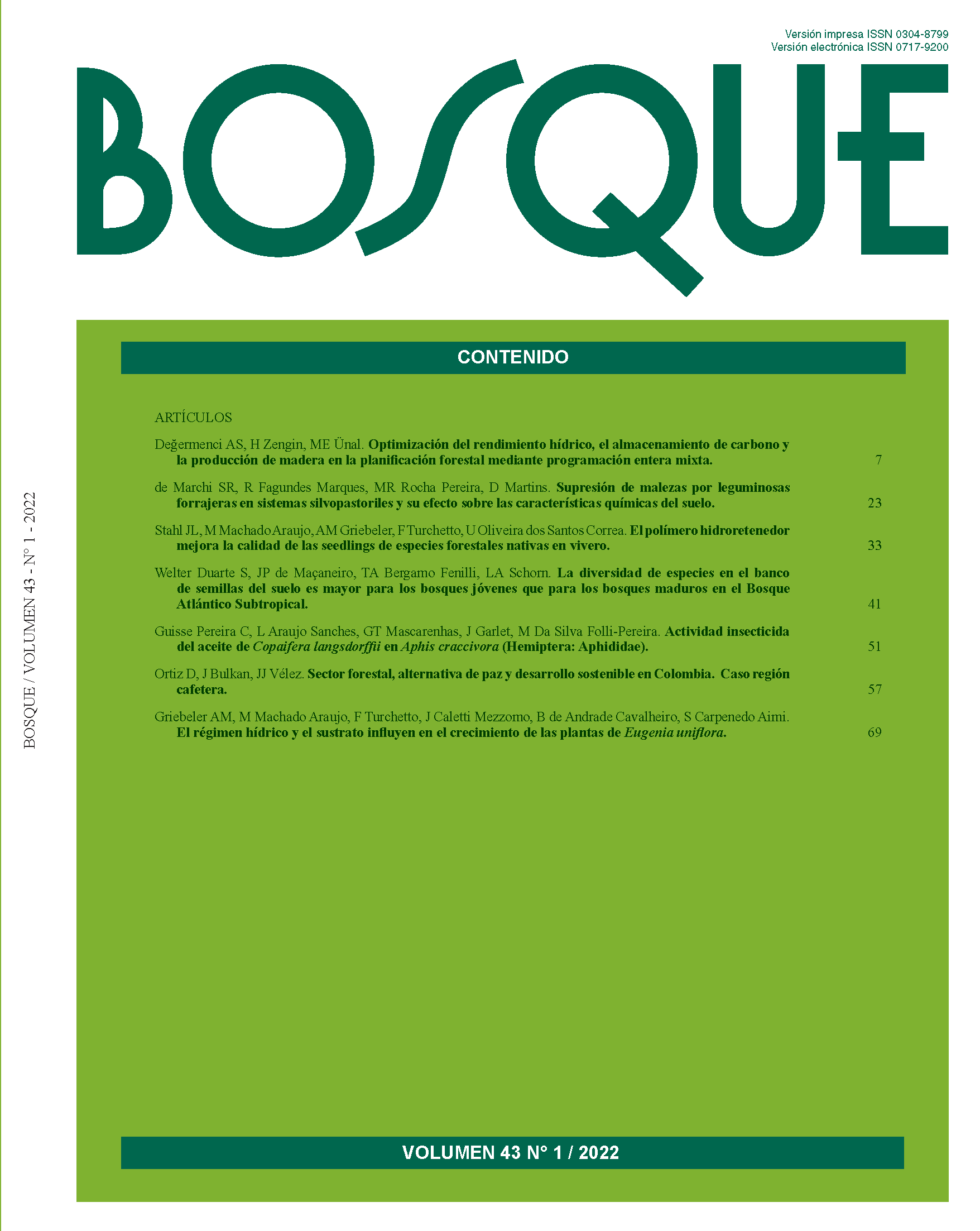Main Article Content
Jul 1, 2022
Abstract
Even when considered a modern cultivation system, silvopastoral systems can be rapidly degraded if some cares, mainly related to weed control, are not observed at the early stages of establishment of this system. The present work had the objective of evaluating the use of forage legumes on weed suppression and on the initial development of Teak (Tectona grandis) when implementing a silvopastoral system. Four legume species were used, namely: pinto peanut (Arachis pintoi), Brazilian stylos (Stylosanthes guianensis), cowpea (Vigna unguiculata) and pigeon pea (Cajanus cajan), which were compared with three weeding regimes: (i) mowing, (ii) hand weeding, and (iii) zero weeding (unweeded plot). The experiment was laid out in a randomized complete-block design with four replications. Each experimental plot consisted of the length corresponding to four Teak plants by four meters in width. Weed suppression assessments were carried out at the end of the annual growing period, represented by the high rainfall season in the region. Weed species were identified and quantified. The weed dry matter produced by found species was determined. Teak plants development was assessed by measuring plants height, stem diameter at the plants neck and breast height in a 2-year period. Pinto peanut and Brazilian stylos put little competitive pressure on weeds, although they produced the largest quantities of organic matter and available nitrogen in the soil and did not interfere in the growth variables of the teak component.


